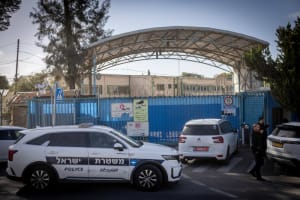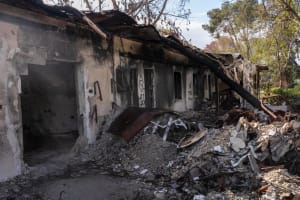‘They were beating her with a rod; I was praying for this to stop’ – US-Israeli hostage Keith Siegel recounts horrors of Hamas captivity
Interview with THE ROSENBERG REPORT: Siegel urges Evangelicals to keep plight of friends held in Gaza in public view

American-Israeli Keith Siegel (65) was finally freed on Feb. 1 after spending an unimaginable 484 days as a hostage in Gaza. Abducted from Kibbutz Kfar Aza – his home of 45 years – on Oct. 7, he and his wife, Aviva, were brutally dragged from their home through a window by Hamas terrorists.
Aviva was released after 51 days in captivity during the first ceasefire deal in November 2023, while Keith endured nearly 16 months in captivity.
“We were brutally forced out of our house through the window. Aviva was injured in her knee, and she still suffers from pain up until this day. I was injured and we were shot at, and my ribs could have been broken, based on the pain that I suffered from for over a month,” he described in an exclusive interview on THE ROSENBERG REPORT on TBN.
Over this long, harrowing period as a hostage, Keith was relocated 33 times, held in tunnels, schools, stairwells, apartments, and houses.
“I was malnourished and dehydrated for most of the time,” he said.
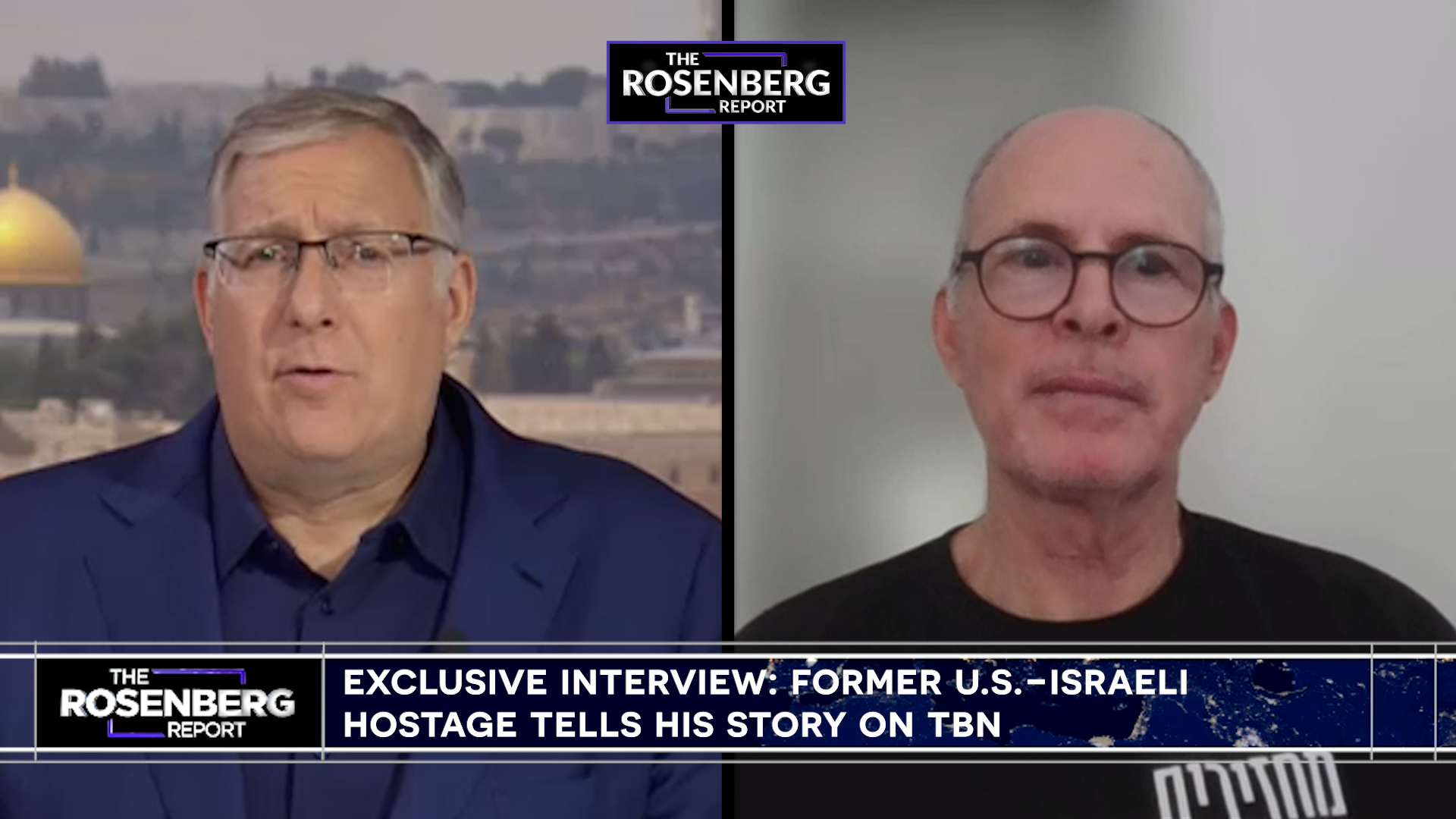
Speaking with ALL ISRAEL NEWS Editor-in-Chief Joel Rosenberg, Keith shared some of the most traumatic moments from his captivity and explained why he feels it’s so important to speak publicly, even as he continues to work through his own healing.
“I'm in therapy. I meet with a psychologist, and I'm also part of a support group of hostages that were released. I'm spending a lot of time with my family and they are helping me enormously… But I'm more worried and anxious and fearful [for] my friends,” he told Rosenberg.
Those friends include the twin hostages, Gali and Ziv Berman, from his kibbutz, as well as Omri Miran and Matan Angrest, whom he came to know while in captivity.
“It feels like the hostage crisis has been kind of moved aside or moved behind. It's urgent to get them back. Every day that goes by is endangering their lives,” he stressed.
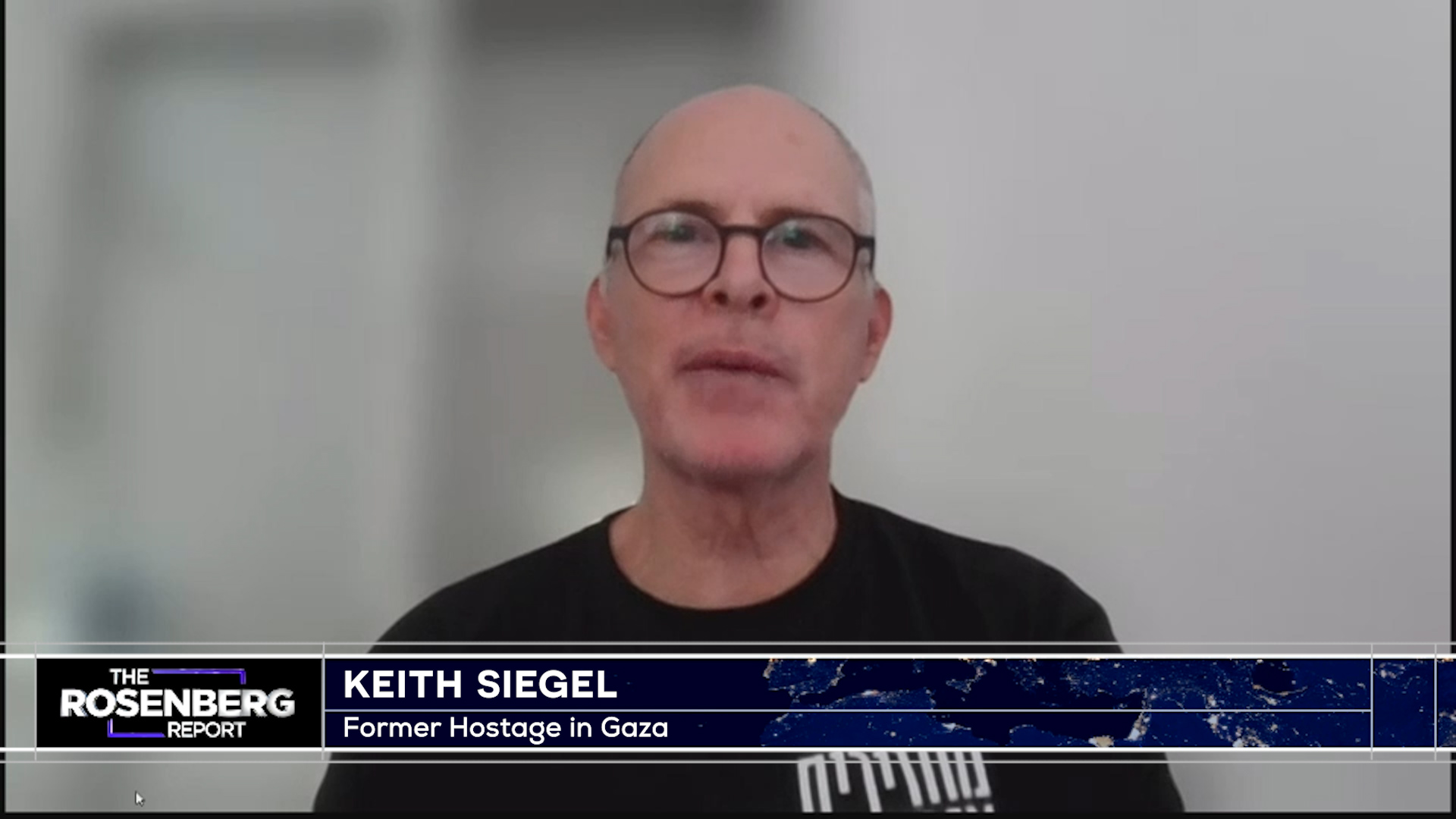
Keith knows firsthand the horrifying conditions they are being held in, and the mental and physical torture they continue to suffer.
“I experienced personally severe violence. A terrorist that kicked me and spat on me and cursed me,” he recalled.
“After the ceasefire broke down on the first of December, the terrorists became very agitated and violent. The way they treated me was much worse… They commanded me to lie on my back on the floor. I had to stay there the whole time. The only time I was allowed to get up was to ask permission to go to the toilet.”
Yet, as terrible as the physical abuse was, Keith says the worst pain was the emotional toll of being completely cut off from his family.
“Not knowing how they were doing was very torturous for me to experience,” he said.
Some of the most haunting memories were witnessing the torture of others. One day, terrorists called him into a room with an Israeli woman they falsely accused of being an IDF soldier. They demanded that he convince her to “confess” – or they would continue their brutality.
“They were beating her. They had tied her hands together and her feet together. They had forced her to lie down on her back. Her mouth was covered, so she couldn't say anything. I remember they were taking turns beating her with a rod,” Keith recounted.
“One of them was standing behind her, holding a metal rod with a very sharp point at the end of it. And it was on this woman's forehead. He was standing behind her and holding this rod with both of his hands, and he was pressing, applying pressure, with this sharp, pointed rod on the hostage woman's forehead.”
At one point, another terrorist stood behind her and held a pistol to her head.
“What was going through your mind and your heart at that point?” Rosenberg asked.
“I was shocked… I'm not really sure what thoughts were going through my mind at that time, but the only thing I remember was praying for this to stop and trying to think what I can do to make it stop, and feeling basically kind of paralyzed. Not in a literal sense.”

Though Keith has recounted this story many times since his release, the feeling of helplessness has only increased.
“What's become more and more difficult as time goes by is the horrible feeling that I did not do anything to stop this,” he admitted. “I really feel bad about it.”
Rosenberg wondered about Keith’s spiritual state as a hostage, asking him about faith and whether prayer helped him during captivity.
“As the days passed, I think, I started to look for strength. Being a Jew, raised in a traditionally Jewish family, I remembered certain prayers,” Keith shared, noting that he had lived a largely secular life as an adult.
“As time went on, I received strength, and it really helped me to get through the days – relating more to my Jewish identity. I think what also contributed to that was the ongoing efforts of the terrorists to convert me to Islam.”
“The more that went on, I felt like my Jewish identity had become more and more significant and gave me strength. So, as time went on, I started saying prayers that I remembered. I prayed before eating and ‘Shabbat Shalom’ before the Sabbath. Everything that I could remember, I would say.”
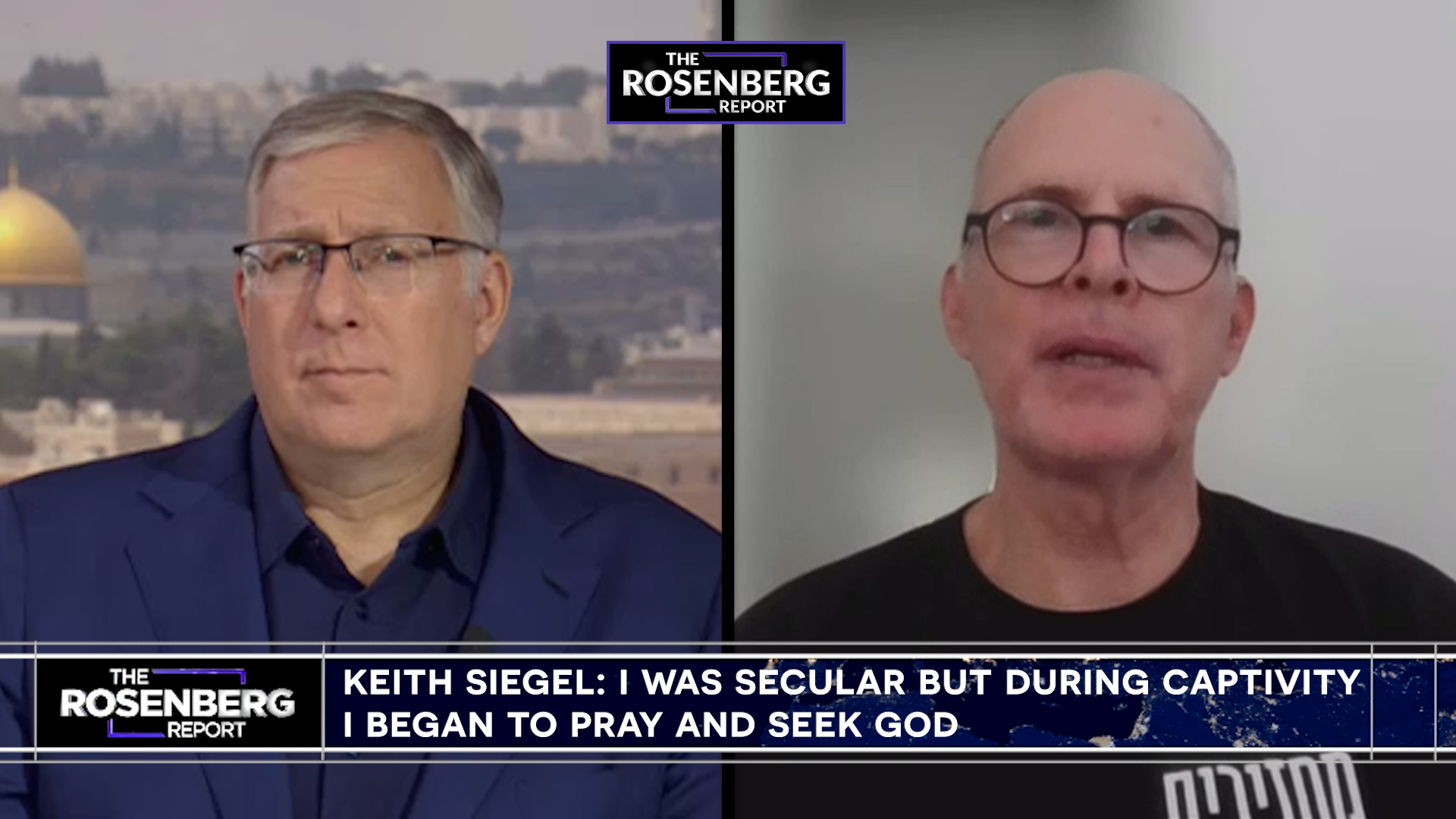
In early May, Keith was part of a delegation of former hostages that traveled to Washington, D.C., to meet with President Donald Trump.
Keith, who was born and raised in the United States, said he is “eternally grateful” to the president for bringing him back to his family.
“I asked him to continue his efforts and urged him to help secure an agreement that will bring all of the remaining hostages back to their families as soon as possible,” he told Rosenberg.
His message to the American Evangelical community is to keep the hostage crisis in the public eye, “in any way that you can.”
Watch Joel Rosenberg’s full interview with released hostage Keith Siegel on the TBN website.
THE ROSENBERG REPORT airs Thursday nights at 9 p.m. EST and Saturday nights at 10 p.m. EST on the Trinity Broadcasting Network (TBN), the most-watched Christian television network in the United States.

The All Israel News Staff is a team of journalists in Israel.
You might also like to read this:










